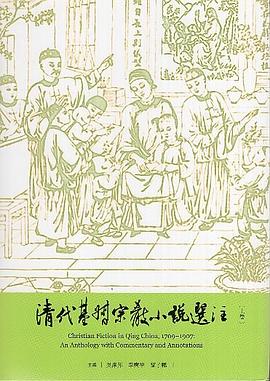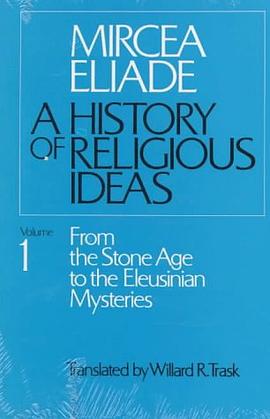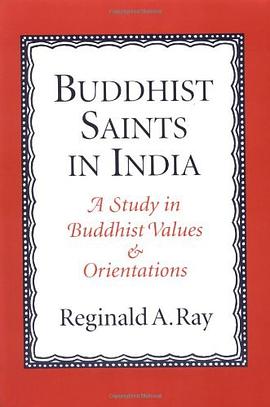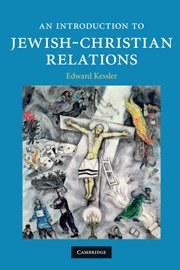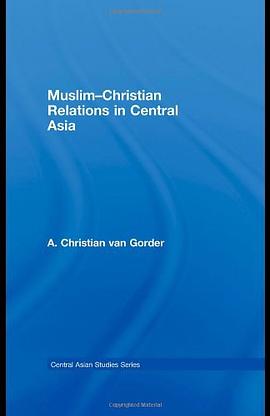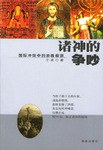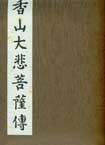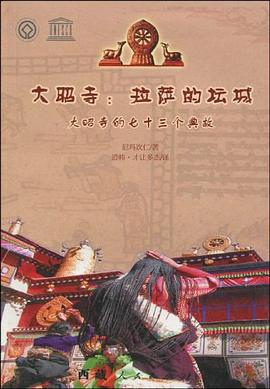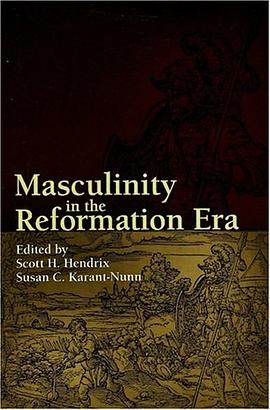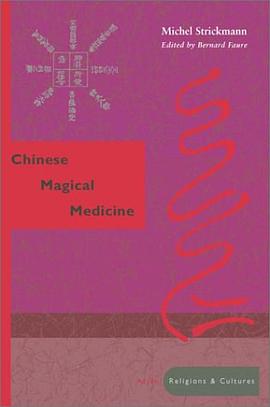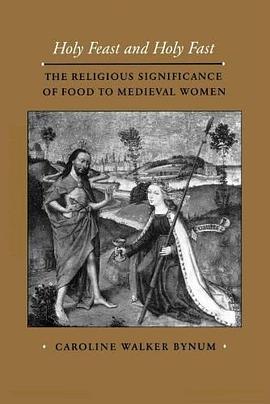

具体描述
In the period between 1200 and 1500 in western Europe, a number of religious women gained widespread veneration and even canonization as saints for their extraordinary devotion to the Christian eucharist, supernatural multiplications of food and drink, and miracles of bodily manipulation, including stigmata and inedia (living without eating). The occurrence of such phenomena sheds much light on the nature of medieval society and medieval religion. It also forms a chapter in the history of women.
Previous scholars have occasionally noted the various phenomena in isolation from each other and have sometimes applied modern medical or psychological theories to them. Using materials based on saints' lives and the religious and mystical writings of medieval women and men, Caroline Walker Bynum uncovers the pattern lying behind these aspects of women's religiosity and behind the fascination men and women felt for such miracles and devotional practices. She argues that food lies at the heart of much of women's piety. Women renounced ordinary food through fasting in order to prepare for receiving extraordinary food in the eucharist. They also offered themselves as food in miracles of feeding and bodily manipulation.
Providing both functionalist and phenomenological explanations, Bynum explores the ways in which food practices enabled women to exert control within the family and to define their religious vocations. She also describes what women meant by seeing their own bodies and God's body as food and what men meant when they too associated women with food and flesh. The author's interpretation of women's piety offers a new view of the nature of medieval asceticism and, drawing upon both anthropology and feminist theory, she illuminates the distinctive features of women's use of symbols. Rejecting presentist interpretations of women as exploited or masochistic, she shows the power and creativity of women's writing and women's lives.
作者简介
Caroline Walker Bynum is Western Medieval History Professor Emerita
School of Historical Studies at the Institute for Advanced Study.
目录信息
读后感
评分
评分
评分
评分
用户评价
以女性与食物为切入点探讨中世纪晚期欧洲妇女的宗教观,及食物作为她们少数能找我的资源,如何承载妇女表现自己信仰的虔诚度。妇女既没有过往研究认为的仇恨自己肉体及强化厌女情结misogyny的想法与表现,相反,她们通过饮食实践“效仿基督”imitation of Jesus属人性humanity、柔弱、喂养者的女性形象,具体的饮食行为包括1.圣宴,化质论transunstantiation影响下食用饼与酒看(耶稣肉与血)达到与基督合而为一;2.圣斋,通过禁食引发的病痛看作与耶稣一同受苦;3.派发食物,分派他人食物看作传递耶稣的爱,救赎他人。由此反对传统观点:禁食等同现代神经性厌食症;妇女强化性别歧视并用禁食自我虐待;苦修asceticism即弃绝世界的纯粹神学观点。作者参鉴新文化史、福柯结构主义。
评分以女性与食物为切入点探讨中世纪晚期欧洲妇女的宗教观,及食物作为她们少数能找我的资源,如何承载妇女表现自己信仰的虔诚度。妇女既没有过往研究认为的仇恨自己肉体及强化厌女情结misogyny的想法与表现,相反,她们通过饮食实践“效仿基督”imitation of Jesus属人性humanity、柔弱、喂养者的女性形象,具体的饮食行为包括1.圣宴,化质论transunstantiation影响下食用饼与酒看(耶稣肉与血)达到与基督合而为一;2.圣斋,通过禁食引发的病痛看作与耶稣一同受苦;3.派发食物,分派他人食物看作传递耶稣的爱,救赎他人。由此反对传统观点:禁食等同现代神经性厌食症;妇女强化性别歧视并用禁食自我虐待;苦修asceticism即弃绝世界的纯粹神学观点。作者参鉴新文化史、福柯结构主义。
评分以女性与食物为切入点探讨中世纪晚期欧洲妇女的宗教观,及食物作为她们少数能找我的资源,如何承载妇女表现自己信仰的虔诚度。妇女既没有过往研究认为的仇恨自己肉体及强化厌女情结misogyny的想法与表现,相反,她们通过饮食实践“效仿基督”imitation of Jesus属人性humanity、柔弱、喂养者的女性形象,具体的饮食行为包括1.圣宴,化质论transunstantiation影响下食用饼与酒看(耶稣肉与血)达到与基督合而为一;2.圣斋,通过禁食引发的病痛看作与耶稣一同受苦;3.派发食物,分派他人食物看作传递耶稣的爱,救赎他人。由此反对传统观点:禁食等同现代神经性厌食症;妇女强化性别歧视并用禁食自我虐待;苦修asceticism即弃绝世界的纯粹神学观点。作者参鉴新文化史、福柯结构主义。
评分以女性与食物为切入点探讨中世纪晚期欧洲妇女的宗教观,及食物作为她们少数能找我的资源,如何承载妇女表现自己信仰的虔诚度。妇女既没有过往研究认为的仇恨自己肉体及强化厌女情结misogyny的想法与表现,相反,她们通过饮食实践“效仿基督”imitation of Jesus属人性humanity、柔弱、喂养者的女性形象,具体的饮食行为包括1.圣宴,化质论transunstantiation影响下食用饼与酒看(耶稣肉与血)达到与基督合而为一;2.圣斋,通过禁食引发的病痛看作与耶稣一同受苦;3.派发食物,分派他人食物看作传递耶稣的爱,救赎他人。由此反对传统观点:禁食等同现代神经性厌食症;妇女强化性别歧视并用禁食自我虐待;苦修asceticism即弃绝世界的纯粹神学观点。作者参鉴新文化史、福柯结构主义。
评分以女性与食物为切入点探讨中世纪晚期欧洲妇女的宗教观,及食物作为她们少数能找我的资源,如何承载妇女表现自己信仰的虔诚度。妇女既没有过往研究认为的仇恨自己肉体及强化厌女情结misogyny的想法与表现,相反,她们通过饮食实践“效仿基督”imitation of Jesus属人性humanity、柔弱、喂养者的女性形象,具体的饮食行为包括1.圣宴,化质论transunstantiation影响下食用饼与酒看(耶稣肉与血)达到与基督合而为一;2.圣斋,通过禁食引发的病痛看作与耶稣一同受苦;3.派发食物,分派他人食物看作传递耶稣的爱,救赎他人。由此反对传统观点:禁食等同现代神经性厌食症;妇女强化性别歧视并用禁食自我虐待;苦修asceticism即弃绝世界的纯粹神学观点。作者参鉴新文化史、福柯结构主义。
相关图书
本站所有内容均为互联网搜索引擎提供的公开搜索信息,本站不存储任何数据与内容,任何内容与数据均与本站无关,如有需要请联系相关搜索引擎包括但不限于百度,google,bing,sogou 等
© 2025 book.wenda123.org All Rights Reserved. 图书目录大全 版权所有



